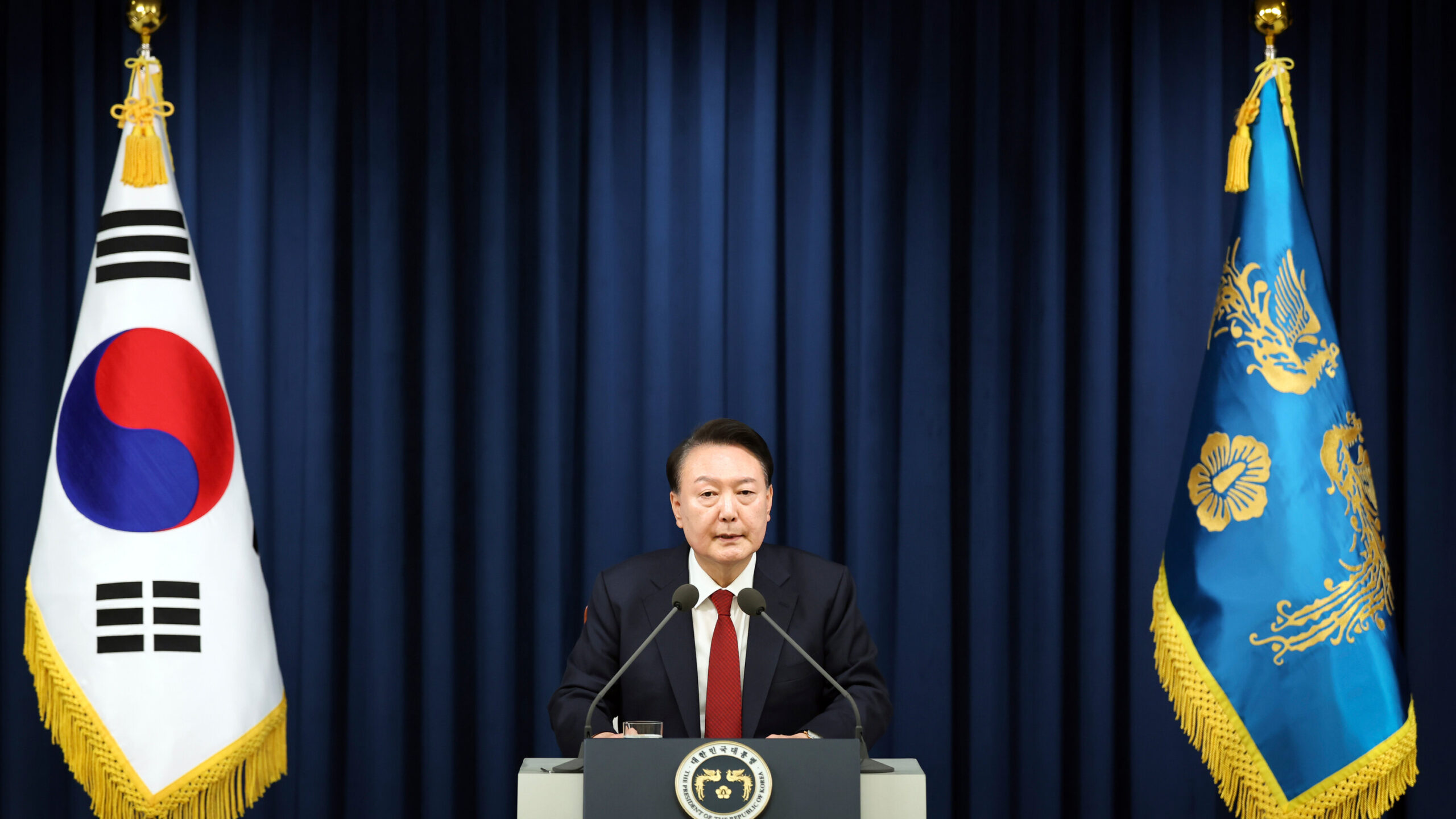Political Turmoil in South Korea
South Korea has been thrust into political turmoil following allegations that President Yoon Suk Yeol may be planning to declare martial law to suppress opposition forces and retain his position. These claims have sparked widespread debates, both domestically and internationally, raising concerns about South Korea’s democracy, historical context, and the potential impacts on its economy.
What Is Martial Law?
Martial law refers to the imposition of military authority over civilian governance, typically invoked during national emergencies, political unrest, or wartime situations. Under martial law, civilian laws are suspended, and the military assumes control over law enforcement, public order, and sometimes the judiciary. While martial law can be a temporary measure, its implications are profound, often curbing civil liberties and democratic rights.
South Korea’s history with martial law dates back to several critical moments, most notably the 1980 Gwangju Uprising, when the government declared martial law to quell widespread protests. The Gwangju massacre remains one of the most painful chapters in South Korea’s modern history, with thousands of civilians killed or injured during the military crackdown.
The Current Allegations: What’s Happening in South Korea?
The latest allegations surrounding South Korean President Yoon Suk Yeol have ignited political fires across the country. The Democratic Party of Korea (DPK), the opposition party, has accused President Yoon of preparing for martial law to suppress dissent and secure his presidency amid growing calls for his impeachment.
- Defense Leadership Shake-Up: A major point of contention is Yoon’s reshuffling of key defense leadership roles. The DPK claims that the president’s move to nominate military figures close to him could be a precursor to martial law. The opposition argues that the military’s involvement in government affairs could signal an attempt to curb the opposition’s influence, particularly if an impeachment motion were to succeed.
- Impeachment Concerns: Yoon is facing increasing pressure from the opposition for his handling of several domestic and international issues, including corruption allegations and the treatment of protests. With his popularity waning, the DPK has openly speculated that he might use martial law as a strategy to hold onto power in case of impeachment proceedings.
The Government’s Denial and Reactions
The South Korean government, particularly President Yoon and his administration, has dismissed these martial law allegations as baseless. Government spokespeople argue that the claims are an attempt to destabilize the country’s political climate and undermine public trust. Yoon’s defense minister nominee, Kim Yong-hyun, denied any plans to impose martial law during his confirmation hearing, emphasizing that his role would focus on defense policy and not political suppression.
Despite these reassurances, the allegations have created significant anxiety among South Koreans, many of whom fear that such drastic measures would return the country to its authoritarian past.
Public Sentiment: Fear of Democratic Backsliding
Public opinion in South Korea has become increasingly polarized. The younger generation, which has grown up in a democratic South Korea, is particularly alarmed by the notion of martial law. They view it as a step backward, potentially undermining the freedoms and rights fought for during the country’s transition from military dictatorship to democracy in the late 1980s.
Social media platforms have become a hotbed of discussion, with hashtags like #SaveDemocracy and #NoMartialLaw gaining traction as citizens voice their opposition to any such moves. Mass protests have erupted in major cities like Seoul, with demonstrators marching against potential authoritarian tactics.
Economic Impact: Market Turmoil and Investor Concerns
The political instability caused by these martial law allegations has had immediate economic consequences. The South Korean stock market, which is home to some of the world’s leading companies such as Samsung, has seen notable drops. Investors are cautious, worried that a breakdown in political stability could affect the nation’s export-driven economy.
The Korean won has also faced volatility, weakening against major currencies, as global markets react to the uncertainty surrounding South Korea’s future. International companies with investments in South Korea are monitoring the situation closely, as prolonged instability could disrupt supply chains and trade relations.
South Korea’s Martial Law History: Lessons from the Past
To understand the gravity of the current situation, it’s essential to revisit South Korea’s history with martial law:
- The Gwangju Uprising (1980): This was the last time martial law was imposed in South Korea, following the assassination of President Park Chung-hee. The military government, led by General Chun Doo-hwan, declared martial law and used force to suppress pro-democracy protests in Gwangju. The violent crackdown left hundreds of civilians dead and is still a sensitive subject in South Korean political discourse.
- The 1987 Democratic Movement: After years of military rule, massive protests in 1987 led to the eventual end of martial law and the establishment of a more democratic political system. Since then, South Korea has made significant strides toward democratic consolidation, which makes the current allegations of martial law so concerning.
What’s Next? Potential Scenarios and Global Reactions
The political impasse surrounding President Yoon’s administration has drawn attention from the international community, especially neighboring countries like Japan and China, as well as the United States, which has a significant military presence in South Korea. International diplomatic bodies have called for stability and respect for democratic processes.
The National Assembly’s response will be crucial in determining whether impeachment proceedings gain momentum. If the motion passes, it could set off a series of events leading to further political upheaval. On the other hand, if Yoon manages to retain power, it may involve deeper consolidation of military support, further complicating the political landscape.
Conclusion: The Uncertain Future of South Korean Democracy
South Korea stands at a crossroads. The allegations of martial law reflect deeper issues within its political system, raising fears of authoritarian regression. While the government vehemently denies any intentions of declaring martial law, the public remains on edge, deeply concerned about the future of democracy in the nation.
As South Korea grapples with its internal crisis, the world watches closely. The next steps taken by President Yoon, the opposition, and the military will determine whether South Korea can continue its democratic trajectory or whether it will face an uncertain and tumultuous future.
FAQs
1. Why is martial law being discussed in South Korea?
Allegations have emerged that President Yoon Suk Yeol might declare martial law to retain power amid impeachment proceedings and political unrest.
2. Has martial law been declared in South Korea?
No, martial law has not been declared. The allegations have been strongly denied by the government.
3. How does martial law affect the economy?
Martial law can disrupt financial markets, weaken the national currency, and cause investor uncertainty, leading to economic instability.
4. What is South Korea’s history with martial law?
South Korea’s most recent experience with martial law was in 1980 during the Gwangju Uprising, where military force was used to suppress pro-democracy protests.
5. What are the potential outcomes of the current crisis?
The outcome depends on the political developments in the National Assembly. South Korea could either resolve the crisis peacefully or face further instability and unrest.
This article provides an in-depth analysis of the current political situation in South Korea, highlighting the complex issues surrounding martial law allegations, public reaction, and the country’s history of governance.





